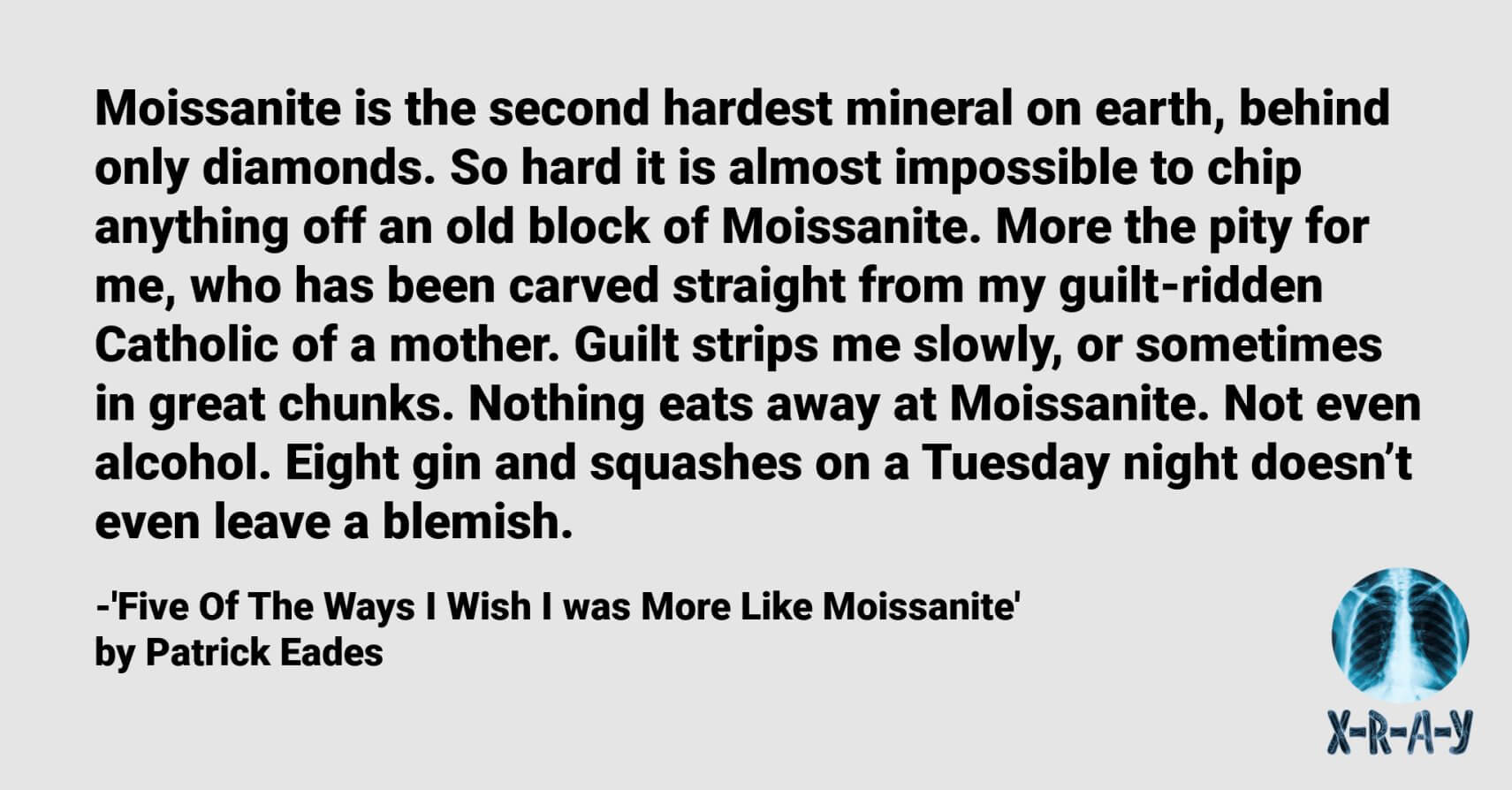People often ask me what my spirit animal is. I’m not sure why I am asked so frequently. Maybe they are unsure if I am still human. Or maybe it is the clear spirits mixed with bile I have used to decorate their terrazzo floors that confuses them, and they are not sure whether to use lion strength metho or if bumblebee spray-and-wipe will be enough.
In any case, I tell them I don’t have a spirit animal, but if I could choose a spirit mineral, it would be Moissanite. Moissanite is somewhat of an unknown in the spirit world, but it’s one hell of a mineral.
Moissanite is the second hardest mineral on earth, behind only diamonds. So hard it is almost impossible to chip anything off an old block of Moissanite. More the pity for me, who has been carved straight from my guilt-ridden Catholic of a mother. Guilt strips me slowly, or sometimes in great chunks. Nothing eats away at Moissanite. Not even alcohol. Eight gin and squashes on a Tuesday night doesn’t even leave a blemish.
Moissanite—unlike my former self—does not contain any soul, or at least none yet discovered by the technology we have available to us as amateur mineral enthusiasts. This is a good thing. Souls are weak. They break at the drop of a baby.
Moissanite—unlike diamonds—is conflict free. Like a dim-witted alien without a spaceship licence, it hitched a ride on a meteor and crashed to the earth’s surface. It can also be grown in a lab, where synthetics can be manipulated for greater strength and resilience.
Perhaps Moissanite is conflict-free because it is incapable of blame. Even if it was able to remember which set of hands strapped —could you really call it strapped?—that baby bicycle seat, or who it was that panicked when a magpie beak perforated their eardrum and haywired their vestibular system—completely understandable—it would not be able to allocate blame in a fair and balanced manner. It wouldn’t even try.
Credit to Moissanite where credit is due, I do believe it would be able to sit through grief counselling sessions without chain-smoking three joints in the alley outside prior. Conversely, it would not have the thumb dexterity to secretly record the most salient points made by Sally the grief therapist to later use as ammunition in a war in which both combatants are already buried in trenches.
And perhaps most importantly—unlike any animal I have met or seen in David Attenborough documentaries, and unlike any of the spirits hiding in my pantry, or in the shaving cabinet, or underneath my bed—Moissanite is not transformational. It is what it is.
It does not have the ability to harden at the sight of a familiar face—now seen only once a year—as it trudges towards a crooked slab of marble lodged in grass. It cannot soften, as it watches this face leak upon withered yellow daisies. And it cannot re-harden, as it sees the face turn, swallow the apology on the tip of its tongue, stand, and walk away once more.
Moissanite originates from the stars, a twinkle in the sky. On cloudless nights, I stand outside and gaze up at all my unmet wishes. If I wait here long enough, perhaps one day she will fall again. This time I will catch her.

